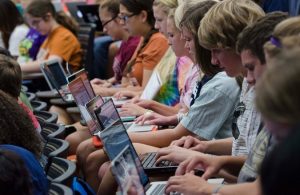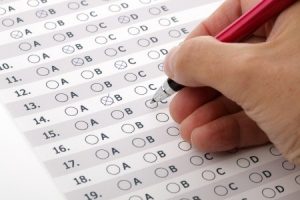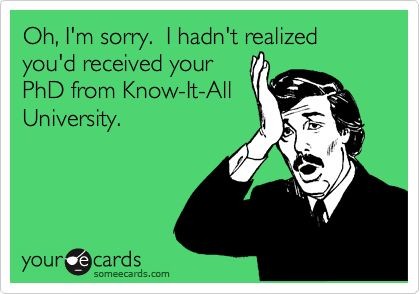You Can Use Quizzes to Measure Teaching Efficacy
The foundation of pedagogical content is the combination of both knowledge and pedagogy. The teaching sessions become boring if a teacher simply talks the ins and outs of a topic/subject. For example, an Economics teacher has to know exactly how to get the concepts across to students with practical examples and implementation rather than just discussing the definitions and referral points in the class room which are taken from a text book/Internet. The teacher must make efforts to make students to learn about positive reinforcement. Teachers cannot go further than their own knowledge of the subject based on their own understanding. And, students understand the good, better best, fair and poor teaching. They cannot be fooled for long. A good class room session consists of one or more pedagogical tools used by a teacher. Good sessions are always memorable. The pedagogical tools are therefore very important.
A seasoned teacher has a good understanding of where students are coming from in reference to the subject being taught. In order to teach a topic well, teachers have to know what the students bring to the table as far as prior ideas, feelings, experience and strategies. For example, many students tend to have personal thoughts about math word problems. A math teacher with pedagogical content knowledge would address each of these prior conceptions and show why each one is inaccurate. The teacher would help the students understand how to break down word problems to make them clearer and see them from a different perspective; after all the learning curve changes in each class room.
In every teacher’s career comes a time when the teacher needs to evaluate the amount of learning taken place in his/her class and its effectiveness. I think one of the best tools for measuring the efficacy is quizzes. There is no elaborate definition of quiz; but, it helps a teacher in gathering information whether learning objectives are met or not. Quizzes help students individually to increase their knowledge they may already know on a certain topic. They also help them to know whether certain topic is helpful in the future. A quiz can be effectively be used from KG to PG at all levels of education.
Before using a quiz, teachers must determine what objectives need to be met. The primary function of the quiz is to evaluate student learning in relation to the teachers instructional methods. Teachers must analyze the results of the quiz and shows statistics and reports about those results. A well designed quiz will help motivate your students, highlighting the subject areas and skill-sets in which they are particularly strong, while pointing out those in which they would benefit by spending more time.
Teachers must be sure that quizzes are developed around content-related questions.
What you get out of your quizzes is determined by the content-related questions asked. If you want to find out how well students have mastered the concept; relate or ask questions pertaining to the concept only. Make sure to always keep simple questions in your quizzes.
As a teacher, your teaching efficacy is shown in the result of the quiz. Did your students pass or fail the quiz? That answer alone will measure student understanding and your teaching effectiveness, and allow you to see where you stand. By looking at the questions which your students answered incorrectly you can determine where there might have been a gap in instruction, or where students became confused. The students must be informed in advance to read up particular subject material in details before they take a quiz. They do not bother much about reading or learning usually. Quizzing keeps them busy with their studies because they get evaluated and they benefit from the feedback that tells them what aspects of their learning are incorrect. Most important thing about quizzes is that they should be treated as an interactive exercise rather than an evaluation. In addition to reducing the anxiety associated with evaluation, this encourages students to use the quizzes as an index of what they need to study.
As a teacher, I have used quizzes maximum because I have seen students can master the material. There should be session followed by the quiz where both teacher and students can talk on various issues/topics asked in the quiz. Preferably, for each question answered incorrectly, feedback should include information on where to turn to find the correct answer.
Item selection should be randomized to make it harder for students to cheat. If every student sees the same quiz items in the same order, students will compare notes and prepare answers to the questions rather than understanding the material. For the same reasons, there should be several different versions of each quiz item.
Quizzes should be due frequently. In keeping with the idea that accumulated practice is less effective than spacing learning throughout the semester, quizzes should be due on a regular basis, say once a week. The number of questions that should appear on a quiz should be based on what the course instructors consider to be appropriate for the class.
When using multiple-choice questions, wherever possible the order of the answers should be scrambled. This makes it harder for students to focus on the answer order and tends to focus them on what the correct answer is. Essay questions may be appropriate for quizzing but should be used sparingly, if only because of the time and effort required to grade them.
Use quizzes for a positive fortification in the classroom.















































